The seven screenwriters and directors nominated in the British Independent Film Awards’ debut categories for 2018 discuss inspirations and challenges in making their films.
Richard Billingham - Ray & Liz
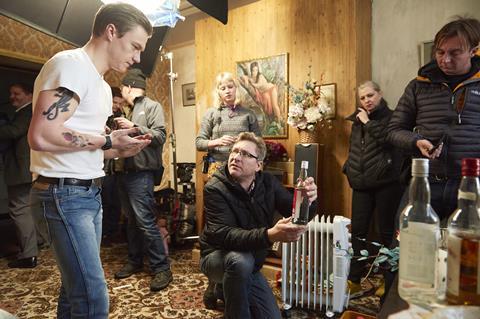
Turner Prize-nominated artist, photographer and filmmaker Billingham is best known for work about his immediate family, such as his acclaimed photography book Ray’s A Laugh, which documents the life of his father and mother. His 47-minute short Fishtank, produced by Artangel and Adam Curtis, was broadcast on BBC2 in 1998. Ray & Liz was shot in the West Midlands where he grew up and documents his family life in three timelines: two of them, set seven years apart, feature Richard and his younger brother Jason as children, while the third focuses on an older, virtually bedridden Ray, whose principal occupation is consuming large bottles of dark homebrew. With a budget of $960,000 (£745,0000), Ray & Liz was produced by Jacqui Davies with backing from the BFI, Film Agency Wales, Rapid Eye Movies and Severn Screen. It premiered at Locarno Festival in August, gaining a special mention jury prize, and has played festivals including London, Stockholm, Thessaloniki and AFI Fest.
Why did you want to tell this story?
Having children — I have three, aged 12, 10 and four years — has made me realise how different my own childhood was and that of kids around me at the time, and that I should try to show what that world was like from lived experience.
What was the key moment when you realised “I am making this film”?
When the BFI offered funding after we made a [video] installation called Ray about my father. Although a gallery installation, it also served as a kind of pilot and demonstrated what a future feature-length film for cinema might look like.
What was the single biggest challenge you faced making the film?
Casting: finding the right actors to play my family members and their friends. The actors had to physically resemble the characters and be able to give convincing performances.
What is the key thing you learnt in the process of making your debut feature?
How immersed I became in the process of making the film during shooting. I found it difficult to think about or do anything else apart from make the film. When shooting was finished, I felt I had to readjust to normal life again.
Which British filmmakers have most inspired you?
For this film, it was The Terence Davies Trilogy. When I first watched it, I was inspired by how, as a viewer, I felt as if I were seeing his memories on screen.
What are you working on next?
There are a few ideas for new films. Regards developing them into scripts, it depends on what can get funded first.
Contact: Mark Casarotto, Casarotto Ramsay
Daniel Kokotajlo - Apostasy
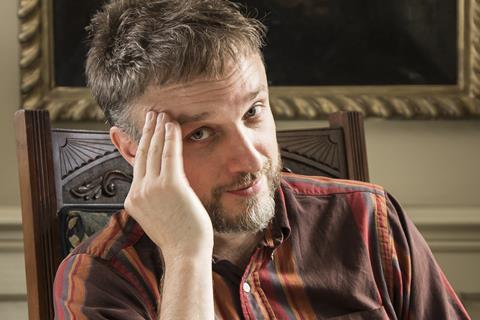
Manchester-born musician and artist Kokotajlo took an MA in screenwriting at the University of Westminster, going on to make shorts including The Mess Hall Of An Online Warrior and Myra. Having grown up in a Jehovah’s Witness community, this 2015 Screen International Star of Tomorrow drew on those experiences with drama Apostasy, telling the story of a mother (Siobhan Finneran) and her two daughters (Molly Wright, Sacha Parkinson) who are pulled apart when one of the young women commits a transgression.
The $640,000 (£500,000)-budget iFeatures film is produced by Marcie MacLellan and Andrea Cornwell, with backing from Creative England, BBC Films, the BFI and Oldgarth Media. Kokotajlo won the IWC Schaffhausen Bursary Award at the BFI London Film Festival in 2017. Apostasy grossed $430,000 (£334,000) in the UK for distributor Curzon Artificial Eye.
Why did you want to tell this story?
I had not seen a British film about this community before. I wanted to explore faith and what it means to people today, more specifically how a fundamentalist faith affects concepts of community, family and identity. It’s also a very personal story, inspired by my own religious upbringing.
What was the key moment when you realised “I am making this film”?
I’m not sure if I ever had that moment. It’s been a bit of a blur. I still feel like I’m making it even though it’s finished and I’m working on different projects now. I suppose I’m never really satisfied; I always want to continue to explore ideas, even if it’s just in my own head.
What was the single biggest challenge you faced making the film?
Making the film relatable to the secular world despite some of the archaic attitudes of characters in the film. The primary focus, when working with the actors, was on the individual character’s needs as a human being, while balancing that with the cognitive pressure they were under from their faith.
What is the key thing you learnt in the process of making your debut feature?
I learnt the value of looking after myself. Alone time, sleep, eating proper food. You can’t sustain a shoot for more than a week or so otherwise.
Which British filmmakers have most inspired you?
Mike Leigh, David Lean, Joanna Hogg, Ken Russell.
What are you working on next?
I’m focused on contemporary British stories. I should have one idea close to a finished script soon.
Contact: Julia Wyatt, Berlin Associates
Bart Layton - American Animals
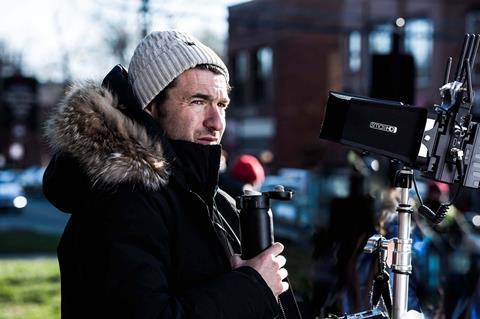
Layton has been the creative director of UK production company Raw for the past 12 years. His debut documentary feature The Imposter won the Bafta for outstanding British debut in 2013 and grossed a healthy $1.4m (£1.13m) at the UK box office. Debut scripted feature American Animals recounts the 2004 events at a Kentucky university when four friends plotted an audacious heist of ultra-rare art books. Produced by Derrin Schlesinger, Katherine Butler, Dimitri Doganis and Mary Jane Skalski, and backed by AI Film, Film4 and RAW, American Animals premiered at Sundance in January. STX’s UK release grossed $960,000 (£749,000).
Why did you want to tell this story?
I guess we all love a heist movie but it was when I made contact with the real people involved in the crime that it began to feel like a more timely story — that of a group of lost young men searching for an identity in all the wrong places. I feel like we live in a culture where there’s increasing pressure to try to be a somebody, to avoid being average at all costs, and this story in some ways looks at where that can lead.
What was the key moment when you realised “I am making this film”?
When we showed up in Charlotte, North Carolina, to find we had a small village assembling in a huge warehouse filling up rapidly with props, wardrobe, picture cars, actors and about 50 times the number of crew I’d ever worked with on anything before.
What was the single biggest challenge you faced making the film?
Convincing financiers that the experimental nature of the film was going to work — that the inclusion of the real people alongside the actors playing them would create a bigger emotional connection to the story and characters instead of throwing people out of the movie. People were in equal measure excited by it as concerned by it. There wasn’t exactly a precedent for it working and even I could only pray it was going to turn out the way I imagined it would.
What is the key thing you learnt in the process of making your debut feature?
Having never written a screenplay, it was probably that I needed a lot fewer words than I’d written. The other thing was to always have a bash at that idea you have that you’re not 100% sure is going to work. Nine times out of 10 it will work better than you ever could have hoped.
Which British filmmakers have most inspired you?
Nicolas Roeg, Alexander Mackendrick, Mike Leigh, Andrea Arnold, Danny Boyle.
What are you working on next?
I’m working on something with the genius British writer Peter Straughan. It’s set in the US, is a little dark but also comedic. There’s a kind of caper at the heart of it but it has distinctly Trumpian overtones. It’s about a charlatan who people would rather convince themselves was their saviour.
Contact: Jodi Shields, Casarotto Ramsay
Karen Gillan - The Party’s Just Beginning
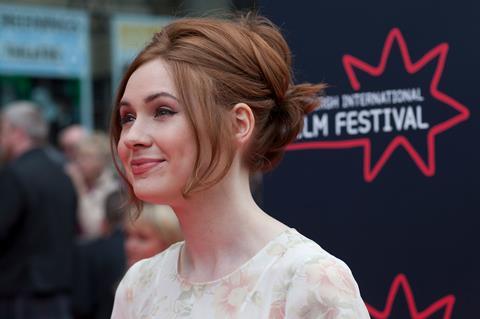
Born and raised in Inverness, Scotland, actress Gillan was catapulted into the limelight when she was cast as Amy Pond, companion to the 11th Doctor (Matt Smith) in the BBC’s Doctor Who. Her five-year stint ended in 2013, and subsequent roles in the Guardians Of The Galaxy films and Jumanji: Welcome To The Jungle have brought her global recognition on the big screen.
In the Inverness-set The Party’s Just Beginning, which she wrote and directed, Gillan stars as a supermarket deli-counter worker who uses joyless blackout-drunk sex to numb the pain of the suicide of her best friend (Alex Lawther in flashback). The blackly comic drama, which was shot in 18 days, is produced by Mali Elfman and Claire Mundell, and was fully supported by the privately capitalised Mt Hollywood Films.
Why did you want to tell this story?
I read a statistic that the suicide rates in the Highlands of Scotland are significantly higher among men than the rest of Scotland. The film is an exploration as to why that might be the case.
What was the key moment when you realised “I am making this film”?
I had a break from shooting Jumanji. It was Thanksgiving and I flew to Scotland to do a location scout. Up until that moment, the film existed only over endless phone calls. This was the first time I saw the visuals and it all became real.
What was the single biggest challenge you faced making the film?
Acting and directing at the same time. I’m incredibly interested in the visuals of filmmaking and because I was in almost every scene, I didn’t have the time behind the monitor that I would have liked. I’ll be behind that monitor next time.
What is the key thing you learnt in the process of making your debut feature?
It doesn’t have to be as stressful as some people make it out to be. It was so fun. That’s not to say it’s not incredibly challenging, but it doesn’t have to be unpleasant. I learnt so much about writing. It’s so important to nail the film in script form before shooting because you will be sitting in the edit bay dealing with issues if they aren’t ironed out beforehand. Sounds obvious but experiencing that first-hand has made me a better writer.
Which British filmmakers have most inspired you?
Lynne Ramsay and Danny Boyle, both offer their own unique type of genius.
What are you working on next?
I’m adapting a short film I made a few years ago called Conventional into a feature. It’s a psychological horror, a genre I can’t wait to get my hands on.
Contact: Michael Duff, Troika
Michael Pearce - Beast
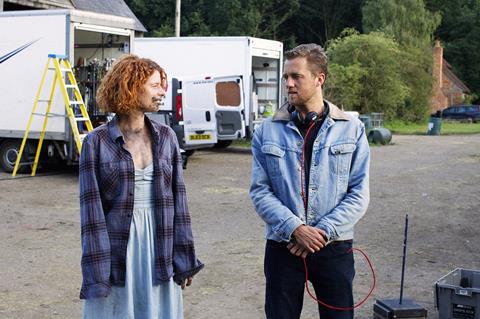
Having studied directing at the National Film and Television School, this 2011 Screen International Star of Tomorrow was a Bafta nominee in 2014 for his short Keeping Up With The Joneses. With Beast, Pearce drew on his recollections growing up on the island of Jersey, the UK Crown dependency located near the French Normandy coast. Fast-rising star Jessie Buckley plays a young woman with a dark past and a suffocating family, who falls in love with a mysterious man (Johnny Flynn) suspected of a series of murders. Produced by Kristian Brodie, Ivana Mackinnon and Lauren Dark, the psychological thriller was backed by the BFI and Film4, grossing $540,000 (£418,000) at the UK box office with its late spring release by Altitude Film Distribution. In addition to the debut categories at the BIFAs, Pearce is also nominated for best screenplay, director and film.
Why did you want to tell this story?
I want to make films about human behaviours that confound me, and by going on that journey I hopefully get more of an understanding about how we function. With Beast, I initially wanted to make a film about someone who is intimately involved with a monster. But in the writing process, I became equally fascinated by more universal monsters: the community Moll feels suffocated by, the dysfunctional family that stifles her, the guilt that imprisons her and the rage lying dormant within her.
What was the key moment when you realised “I am making this film”?
When the first-day nerves kicked in. I arrived to set, saw all the trucks and people I didn’t know moving equipment about. Everyone seemed to know what they were doing. I thought: “Shit, it’s happening.” I made a cup a tea and told myself to pretend to know what I was doing.
What was the single biggest challenge you faced making the film?
Time. We had many locations, crowd sequences, scenes that demanded a lot from the actors, and we wanted to maintain a very specific aesthetic. There was little margin for error.
What is the key thing you learnt in the process of making your debut feature?
Trust your instincts. Your gut is the best indicator whether a scene or a shot is working. If it isn’t, better to adjust it on set than deal with it in the edit. It seems obvious but there’s such urgency to get through the scenes you can suppress that inner voice.
Which British filmmakers have most inspired you?
Lynne Ramsay, Jonathan Glazer, Steve McQueen.
What are you working on next?
Invasion, a US-set sci-fi thriller written by Joe Barton and produced by Raw and Film4.
Contact: Jack Thomas, Independent Talent Group
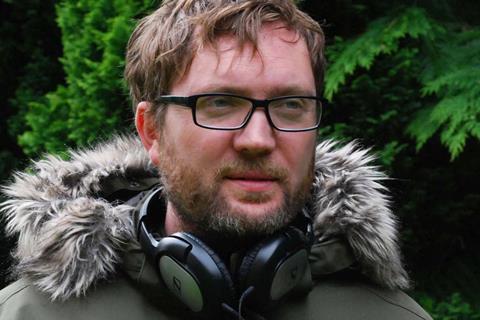
Matt Palmer - Calibre
Midlands-born but resident in Scotland for 25 years, Palmer has juggled a career directing acclaimed shorts with work as a programmer of cult movies and horror films, including for BFI Southbank,
Picturehouse and the popular Edinburgh-based All Night Horror Madness. His shorts include The Gas Man, Daylight Hole and Island. In Calibre, Jack Lowden and Martin McCann play lifelong friends who cover up a tragic accident while on a shooting trip in the Scottish Highlands. The $1.9m (£1.5m)-budget thriller is produced by Alastair Clark and Anna Griffin for Wellington Films, with backing from Creative Scotland, Creative England and Ingenious. Calibre sold to Netflix on completion; won the Michael Powell award for best British feature at Edinburgh International Film Festival; and enjoyed a Bafta-qualifying run in select UK cinemas.
Why did you want to tell this story?
It felt more like this story came looking for me. The movie was based on a single extremely startling image that just popped into my mind one night and hit me like a thunderbolt. Ultimately it felt like I was wrestling with themes in the script that, in underlying ways, were very personal to me but in terms of the story are presented in a very universal way.
What was the key moment when you realised “I am making this film”?
That moment only truly came when I felt like I was having an out-of-body experience on the first day of shooting. Directing your first feature is crazy because, in my case at least, I’d only directed three shorts with 14 shooting days in total, so it’s really like jumping off a cliff.
What was the single biggest challenge you faced making the film?
As I purposely surrounded myself with as much experience I could in every department, from crew to actors, the biggest challenge was maintaining my own vision for the film while giving a group of very talented people as much space for creativity as possible. That and the crazy lack of time. On a low-budget feature, time pressures are extremely intense and maintaining top-level performances and craft is tough.
What is the key thing you learnt in the process of making your debut feature?
That you have to strive to nurture a sense of Zen-like calmness under pressure. Intense stress can be creative, but sleeping and calmness is key over the long haul.
Which British filmmakers have most inspired you?
John Mackenzie and Donald Cammell.
What are you working on next?
A brutal remake of a classic British horror movie and an original US-based thriller.
Contact: Josh Varney, 42
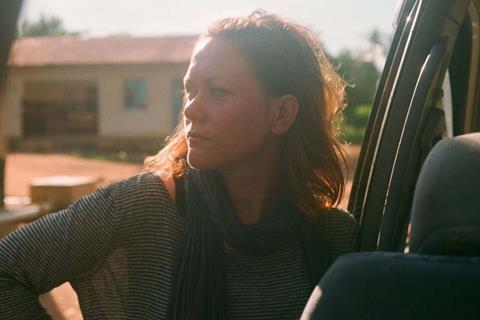
Leanne Welham - Pili
Welham is a self-taught filmmaker who trained as an editor at a production house, borrowing the company’s camera equipment at the weekend to make a series of shorts, including the UK Film Council-backed Nocturn (2010). While making a documentary about marathon runners from Sierra Leone, she met Sophie Harman, an academic at Queen Mary University of London, who co-writes and produces Pili. Harman fully financed the $100,000 (£80,000) budget with a grant she won from Axa Insurance for her work on women living with HIV in sub-Saharan Africa.
Shot in rural Tanzania using real locations, Pili sees the titular protagonist struggling to feed her two children, while also trying to keep her HIV-positive status a secret. When the chance to rent a sought-after market stall arises, she has two days to get the deposit money together. Pili is not a documentary, says Welham, but uses real people and real stories from the community.
Why did you want to tell this story?
Sophie and I wanted to give a voice and visibility to women whose stories are rarely heard. The majority of films dealing with HIV tend to focus on the white male experience, so we wanted to tell a story that represented the majority of people living with HIV in the world right now. We interviewed 85 women in the community to research the story and then consulted with them closely as I wrote the screenplay. We didn’t want to make a film about a health status, but about a real woman who is relatable, flawed and authentic.
What was the key moment when you realised: “I am making this film”?
Maybe a week in, holding on to the camera lenses for dear life while riding on the back of a motorbike to the next location across a very bumpy field.
What was the single biggest challenge you faced making the film?
Working with such a small budget meant that I was not only the director, but also the costume department, continuity, location manager and art department. I had a bumbag full of Polaroids to make sure the cast were wearing the right clothes for the right story day. It was a lot to think about.
What is the key thing you learnt in the process of making your debut feature?
Stick to your vision. Pili was an almost impossible film to make but if you have a good idea and you persevere, you can achieve a lot with very little.
Which British filmmakers have most inspired you?
Andrea Arnold, Steve McQueen, Stanley Kubrick.
What are you working on next?
The Warning, a thriller set over one night during the height of the Blitz, produced by Parkville Pictures and James Schamus’s Symbolic Exchange.
Contact: Roxana Adle, Independent Talent Group















![[L-R]: Amanda Villavieja, Laia Casanovas, Yasmina Praderas](https://d1nslcd7m2225b.cloudfront.net/Pictures/274x183/6/4/1/1471641_pxl_20251224_103354743_618426_crop.jpg)








![[L-R]: Amanda Villavieja, Laia Casanovas, Yasmina Praderas](https://d1nslcd7m2225b.cloudfront.net/Pictures/100x67/6/4/1/1471641_pxl_20251224_103354743_618426_crop.jpg)
No comments yet